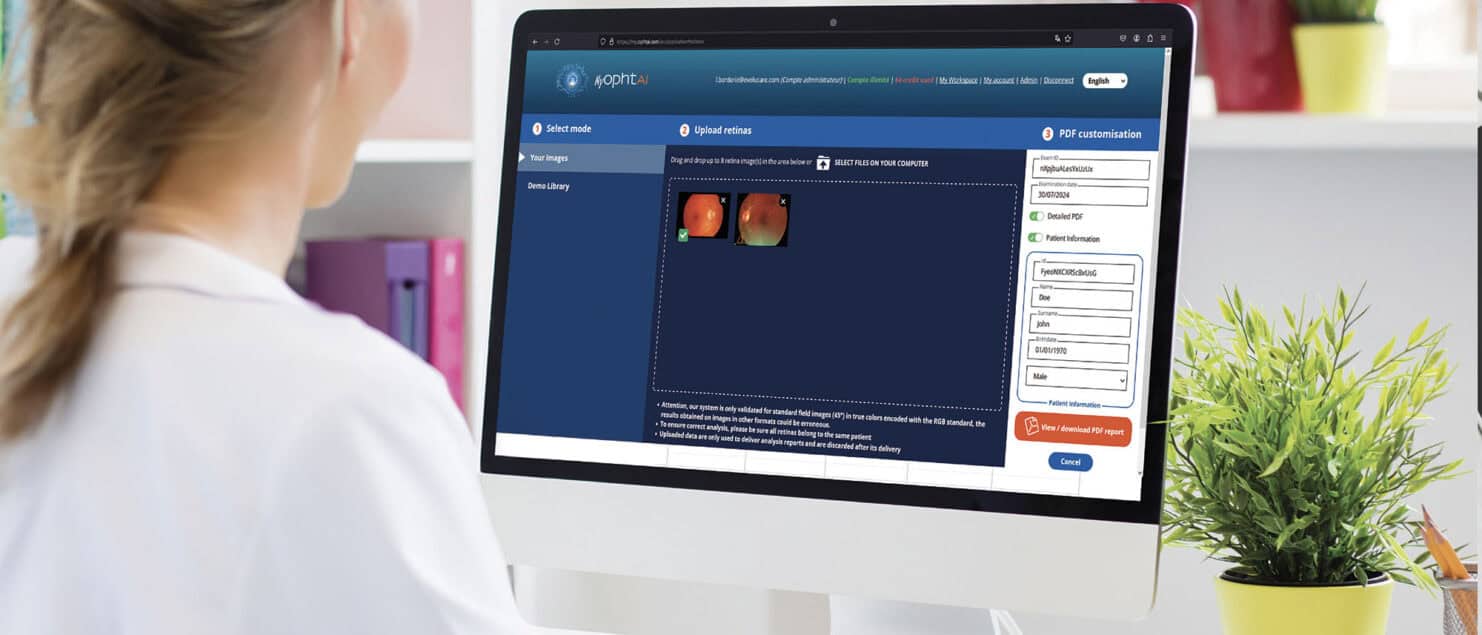
By Alexandre LE GUILCHER
Alexandre Le Guilcher, Research & Innovation Director of the Evolucare Technologies group, reveals the behind-the-scenes of a French company pioneering in healthcare IT systems.
Between activity management solutions and innovations based on artificial intelligence, Evolucare positions itself as a key player in supporting the evolution of the medical sector.
Article published in April 2025 in La Jaune et la Rouge, the alumni magazine of Polytechnique
Can you present your company and your background in a few words?
I am an engineer by training, graduated from INPG. In 2007, I joined Evolucare, the family business founded more than 25 years ago by my father, Elie, which has since been joined by my brother Romain (deputy director) and my sister Morgane (HR & Quality Director). For my part, after holding various director positions, I created Evolucare Labs in 2015, a service dedicated to collaborative innovative projects. We had anticipated the rise of artificial intelligence, its impact and therefore its opportunities in our market.
What are Evolucare’s main areas of intervention?
Evolucare has more than 25 years of experience, 450 employees mainly in France, but also in Belgium, Germany and Spain.
We offer cross-functional IT solutions for healthcare establishments (hospitals and clinics) and medico-social facilities (nursing homes, establishments for disabled people), particularly in the management of computerized patient/resident/user files, care organization, administrative management, and inventory management. We have extended our range through external acquisitions and offer expert solutions in critical care (operating room, anesthesia, intensive care) and medical imaging (RIS, PACS). What distinguishes us is our ability to cover the entire patient journey, with solutions adapted to each stage and each need. Since mid-2023, Evolucare has belonged to the Italian group GPI which has numerous subsidiaries worldwide, which will allow us to accelerate our international deployment.
How is innovation integrated into your strategy?
Innovation is essential to meet the challenges of a sector as complex as healthcare. We created Evolucare Labs, our research laboratory, to explore emerging technologies like artificial intelligence (AI). Our objective was to surround ourselves with the best; we work in partnership with reference public institutions within the framework of collaborative projects. In this way, we have access to the necessary expertise, whether medical or technological.
Was it in this context that the OphtAI solution was created?
Yes, OphtAI is an artificial intelligence capable of detecting the main retinal pathologies from a photo taken by a retinograph. This solution was created in partnership with AP-HP and its Ophdiat network, the largest French network for diabetic retinopathy tele-screening. They provided us with the database of retinal photos with annotations made by retinologists from Lariboisière Hospital. The neural architecture and trained model were developed with LATIM, a public R&D laboratory (UBO/INSERM) specialized in medical image analysis.
The artificial intelligence model, resulting from the project, is very powerful and reproduces the expertise of the best specialists.

Can you detail the advantages of OphtAI?
OphtAI addresses a major challenge: screening for diabetic retinopathy. This complication of diabetes can lead to irreversible vision loss if not detected in time. The WHO recommends annual screening for diabetic patients, but in France, as everywhere in the world, the lack of ophthalmologists relative to the growing number of diabetics complicates things.
Our solution allows non-specialists to identify patients requiring priority care, thus reducing the workload of ophthalmologists who can focus on therapeutic management.
Is the solution safe enough for such use?
Artificial intelligence raises several challenges in the medical sector. Its tools must meet high standards in terms of safety and ethics, such as CE marking for medical devices in Europe, but also data protection, a crucial subject in healthcare (GDPR). We have also proven the effectiveness of this technology by winning several international competitions.
What about acceptance by healthcare professionals?
A new technology can be perceived as complex or intrusive. That’s why we invest in awareness-raising by participating in numerous conferences so that doctors and other professionals understand and adopt our tools. The idea is to bring diagnostics closer to patients, to avoid unnecessary travel and especially to shorten delays to detect as early as possible and comprehensively. These initiatives require robust and accessible technologies, but also a redesign of care pathways. Our role is to support this transition by developing innovative tools, while remaining in line with field needs.
What other projects are you currently conducting?
We have already, with the same partners within the framework of a joint laboratory, evolved the solution since its release in 2019. We have added detection of AMD and suspected glaucoma. We have also developed lesion mapping to provide explainability. We are currently working on releasing a version containing 12 new detectors with the objective of being able to say whether the retina is healthy or if there is a need to consult an ophthalmologist.
We will also release predictive models, allowing us to anticipate the evolution of a pathology.
Where are you in the deployment of this solution?
OphtAI is a new activity, complementary for our group, which can be slow to deploy massively because depending on the country, regulatory adaptation may be necessary. We are conducting several regional experiments, testing screening at general practitioners or in pharmacies and have submitted to the High Authority for Health a request to create a new AI-assisted screening procedure.
Outside France and Europe, our main markets, it is already used in many countries ranging from Canada to Chile, through Africa to Hong Kong. Thanks to its operation as a cloud-hosted service, its deployment is fast and efficient. We work through a network of international partners who integrate the service into their solutions in addition to having an online version accessible from anywhere (my.ophtai.com).
A final word?
We firmly believe at Evolucare that the future of healthcare lies in better synergy between technology and humans. Innovation only makes sense if it responds to the concrete needs of caregivers and patients. At Evolucare, we do everything to ensure that our solutions are efficient, accessible and, above all, useful.

